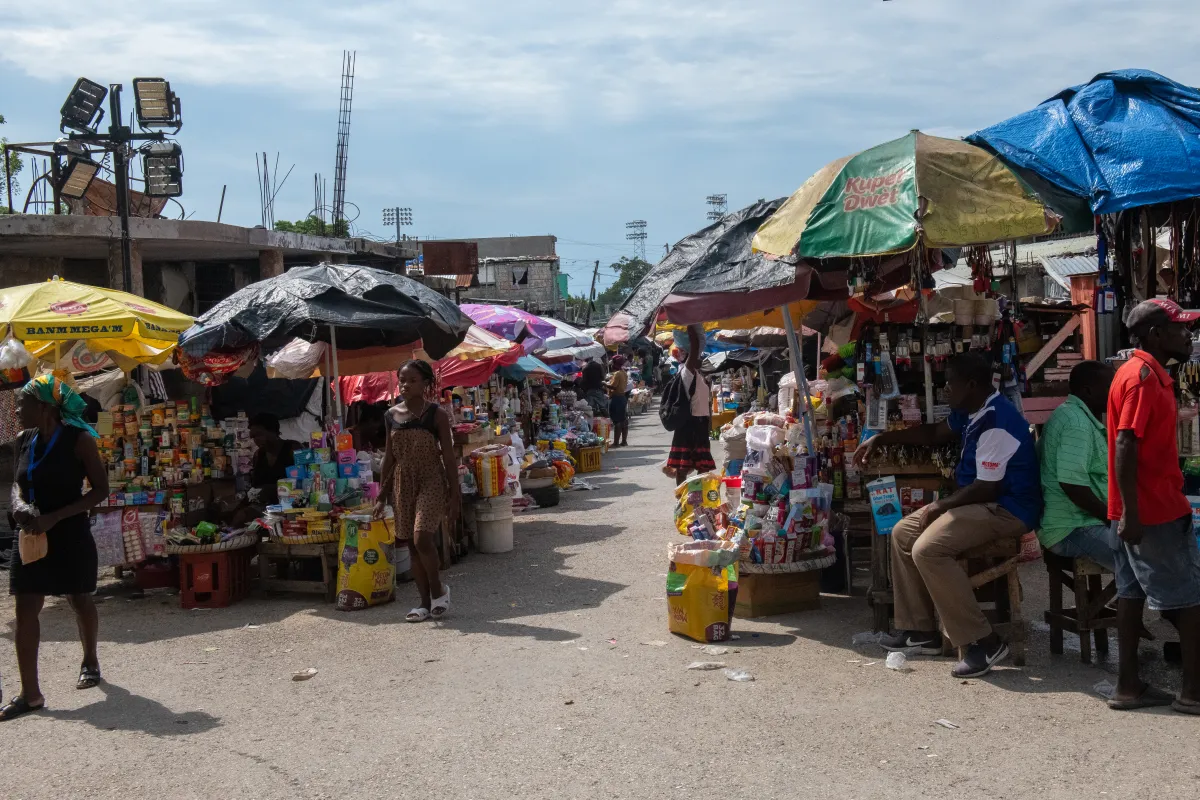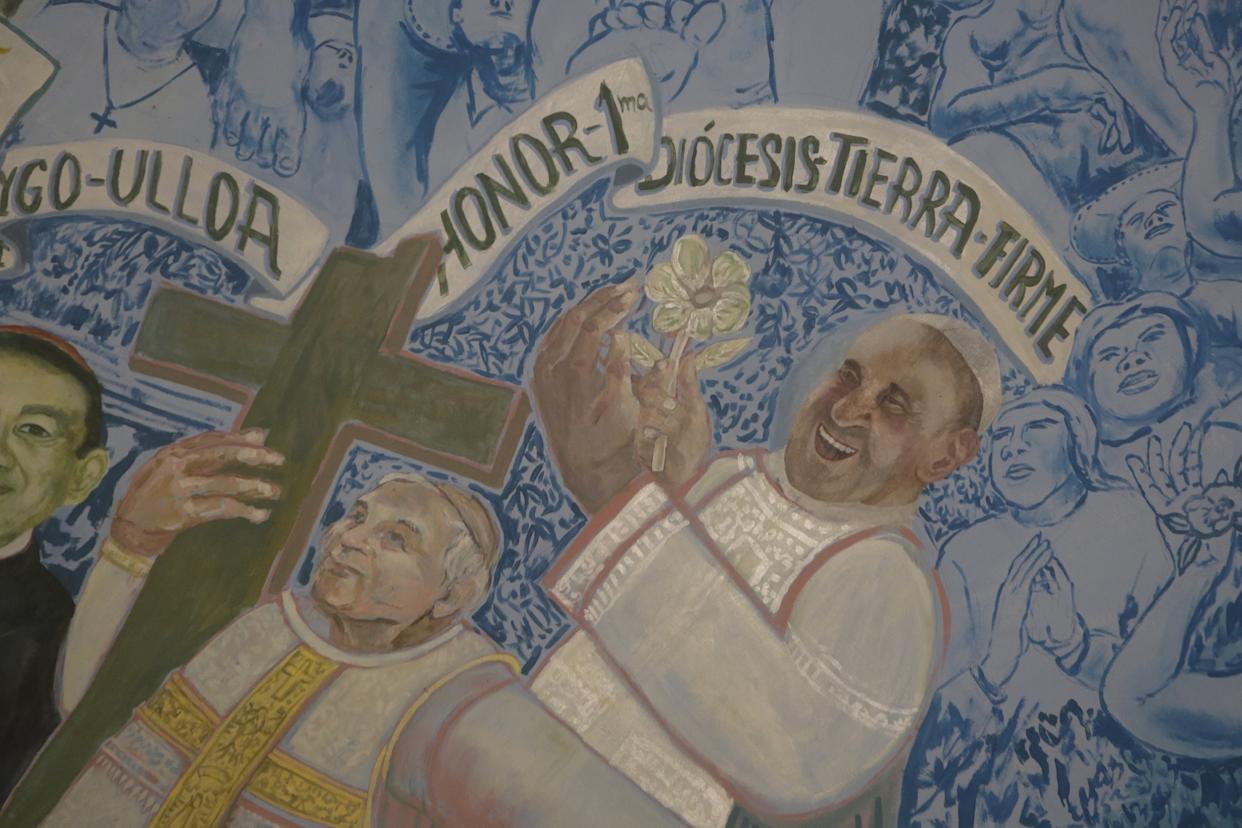International
Little progress three months after the arrival in Haiti of the Security Support Mission

Three months after its deployment began in Haiti, the Multinational Security Support Mission (MMAS) still does not give the expected results: there is no significant progress, violence continues to reign and 80% of the capital remains in the hands of armed gangs.
“Are the Kenyans in Haiti? We have never seen them, no one has seen them. They don’t pass through the area,” neighbors and merchants of Marchand Salomon, in the heart of the capital, tell EFE.
If things have improved, they say, “it is by the will of the bandits that they have decided to let us work properly. The bandits use the area as a passage zone” and add: “If the Kenyans had come to save us, we would all be dead. It’s not the Kenyans who prevent the gangs from killing us. If they wanted to, they would do it.”
Lean results
Some patrols in certain streets, some joint operations with the Haitian National Police in Centre-ville in Port-au-Prince or in the communes of Delmas and Ganthier, clashes with armed gangs that result in deaths. This is the balance sheet of the multinational mission so far.
When visiting Haiti last Saturday, Kenyan President William Ruto praised the merits of the force, said that he had seen much progress in the Caribbean country and said that doubts, criticism and pessimism were decreasing in the face of Kenya leading a mission that has the approval of the UN.
According to Ruto, there is much more security at the airport, the National Palace, the State University Hospital, the Police Academy and the ports and now work is being done to reopen the roads (“the work is difficult, but we are capable of doing it”), but more resources and equipment are needed: “The troops we have in Haiti are not enough.”
On the ground you can see a resounding lack of logistics, equipment, personnel. The force should have 2,500 officers, but there are just over 420 (400 Kenyans, 20 soldiers and 4 Jamaican policemen and two Belizean soldiers). About twenty countries have committed to send troops and Ruto announced that, between October and November, another 600 troops from Kenya will be in Haiti.
In those days William O’Neill, an independent expert on the human rights situation in Haiti, declared: “the equipment received is inadequate and the resources insufficient (…) I am sad to say that all the indicators are still extremely worrying. The first, and most worrying, is insecurity.”
The constant deterioration of security in Haiti
Only 28% of health services are functioning normally in Haiti, almost 5 million people suffer from acute food insecurity, there are at least 700,000 displaced people (more than half children) and security does not improve.
The Haitian Prime Minister, Garry Conille, recognizes it: “In the 100 days of this government, we have not yet seen important results (…) Especially in terms of security, but we have already laid the foundations. We have taken the time to design the national security strategy with the Police, the Army, the municipal security councils and the population.”
In view of this, the expert William O’Neill considers “crucial to suffocate the gangs by providing the Multinational Security Support Mission with the necessary means to be effective in supporting the operations of the Haitian National Police and applying the other measures provided for by the United Nations Security Council, in particular the sanctions regime and the selective arms embargo.”
Conille, for his part, assures that his government will not back down: “I have no doubt that together we will be able to restore security. We will help the displaced to return to their homes. We will reactivate our economy. We will make the necessary changes in our Constitution. And, finally, we will hold elections next year and there will be a new government on February 7, 2026.”
International
DHS Secretary Kristi Noem’s Purse Stolen in D.C. Restaurant Heist

The purse of Kristi Noem, Secretary of the Department of Homeland Security, was stolen on Sunday night at a restaurant in Washington, D.C., Fox News Digital confirmed through several agency sources.
The handbag, taken by a white male wearing a mask, reportedly contained $3,000 in cash along with personal documents, including her passport, keys, driver’s license, and DHS badge, according to an agency spokesperson.
“Her entire family was in town, including her children and grandchildren. She was celebrating her retirement by treating them to dinner, activities, and Easter gifts,” the spokesperson added.
Crime continues to be a significant issue in the U.S. capital, particularly theft. However, violent crime reached its lowest level in 30 years last year, according to the Office of the Attorney General at the time.
International
Pope Francis: The Quiet Architect Behind the U.S.-Cuba Thaw

When then-U.S. President Barack Obama and Cuban President Raúl Castro announced the reestablishment of diplomatic relations in December 2014—after decades of hostility—there was a third figure present in both speeches: Pope Francis.
This thaw in U.S.-Cuba relations—later reversed by Donald Trump—was the result of behind-the-scenes negotiations personally encouraged by Pope Francis, who passed away on Monday at the age of 88, just over a year after becoming head of the Catholic Church.
Upon learning the news of the breakthrough, the pontiff humbly stated, “This was made possible thanks to the ambassadors and to diplomacy,” which he called “a noble, very noble job.”
In 2015, months after the announcement, Raúl Castro visited the Vatican and met with the pope. Over time, Castro developed a fondness for Francis that he never had for his predecessors, Benedict XVI and John Paul II. “If the Pope continues talking like this, sooner or later I’ll start praying again and return to the Catholic Church—and I’m not joking,” said the younger Castro, who, like his brother Fidel (1926–2016), had been educated by Jesuits—the same order to which Pope Francis belonged.
Pope Francis visited Cuba later that year. Just days before his arrival, the Cuban government announced the pardon of 3,522 common prisoners as an act of clemency.
While in Havana, the pope met with Fidel Castro, who gave him a first edition of the book Fidel and Religion by Brazilian friar and liberation theologian Frei Betto.
Criticism from the Opposition
Francis’s diplomatic approach also drew criticism from parts of the Cuban opposition. In a 2022 interview with Univision, the pope revealed he had “a human relationship” with Raúl Castro.
International
Dominican Republic Declares Three Days of Mourning for Pope Francis

Dominican Republic President Luis Abinader has declared three days of national mourning starting Tuesday following the death of Pope Francis, who passed away on Monday at the age of 88 in his residence at the Casa Santa Marta.
In an official decree, Abinader highlighted the pope’s legacy “as a global leader who promoted significant reforms within the Catholic Church and was known for his humility, openness to dialogue, and commitment to peace among nations.”
During the mourning period, the national flag will be flown at half-staff at military facilities and public buildings.
According to a statement from the Office of the Presidency, although Pope Francis never visited the Dominican Republic during his papacy, he maintained a close relationship with the country. He expressed solidarity and empathy during difficult times, including offering prayers for the victims of the recent tragedy at a Santo Domingo nightclub on April 8, which claimed 232 lives and left more than 180 injured.
-

 Central America4 days ago
Central America4 days agoNicaraguan Exiles to Mark 7th Anniversary of 2018 Protests with Global Commemorations
-

 International4 days ago
International4 days agoDominican ‘False Hero’ Arrested for Faking Role in Nightclub Collapse That Killed 231
-

 International3 days ago
International3 days agoACLU seeks emergency court order to stop venezuelan deportations under Wartime Law
-

 Central America3 days ago
Central America3 days agoUN complaint filed against Costa Rica over detention of migrant children
-

 International2 days ago
International2 days agoThousands rally nationwide against Trump’s threat to U.S. democracy
-

 Central America1 day ago
Central America1 day agoSenator Van Hollen Meets with Deported MS-13 Member in El Salvador; Trump and Bukele React
-

 International1 day ago
International1 day agoPope Francis Appears for Easter Blessing, Calls for Peace and Religious Freedom
-

 Central America3 hours ago
Central America3 hours agoCardinal Rodríguez to Attend Funeral of Pope Francis: “He Was Very Dear to Me”
-

 International3 hours ago
International3 hours agoDominican Republic Declares Three Days of Mourning for Pope Francis
-

 Central America3 hours ago
Central America3 hours agoNicaragua’s Ortega and Murillo Mourn Pope Francis, Acknowledge ‘Difficult’ Relationship
-

 International3 hours ago
International3 hours agoDHS Secretary Kristi Noem’s Purse Stolen in D.C. Restaurant Heist
-

 International3 hours ago
International3 hours agoPope Francis: The Quiet Architect Behind the U.S.-Cuba Thaw















